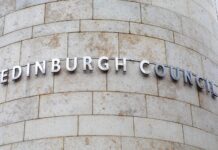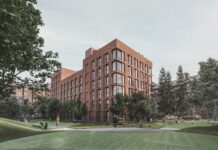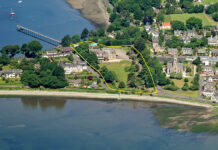
WORK is set to begin on £4 million worth of planned improvements across Falkirk Council’s school estate.
Alongside enhancing both the fabric of the school buildings and the general learning environment, the investment will also boost the green credentials of several primary schools.
Approximately £2.8 million will be invested in energy efficiency and renewable projects in five primaries – Avonbridge, Bowhouse, Kinnaird, Larbert Village, and St Margaret’s. This work includes the installation of solar panels, LED lighting, boiler controls, and air source heat pumps. A further £180,000 will be invested to upgrade the boilers at Moray Primary School.
These measures will not only reduce the carbon footprint of each school and help the council realise its net zero aspirations but also lead to long-term cost savings, the local authority said.
Approximately £800,000 has been allocated to improve roofs and the external fabric at seven primary schools – Carron, Dunipace, Larbert Village, St Mary’s, Stenhousemuir, Wallacestone, and Kinnaird. The upgrades include roof replacements, gutter works, and external render improvements.
Other works, totalling £118,000, include upgrading car park drainage at Antonine Primary School, redecorating external woodwork at Denny Primary School, and installing security fencing at Westquarter Primary School.
Hallglen Primary School and St. Margarets Primary School will also see £100,000 spent on toilet refurbishments. This includes new sanitaryware, flooring, cubicles, lighting, and decoration.
The majority of the works are scheduled for the summer holidays to minimise disruption to the school year, ensuring pupils can return to improved facilities without the inconvenience of ongoing construction, the council said.
Paul Kettrick, Falkirk Council’s head of Invest Falkirk, said, “This investment is about more than just repairs and maintenance; it’s about undertaking planned improvements to our learning estate to provide children and young people with a safe, modern, and sustainable learning environment. By carrying out these works over the summer months, we can minimise disruption and maximum benefit for our schools and community.”








